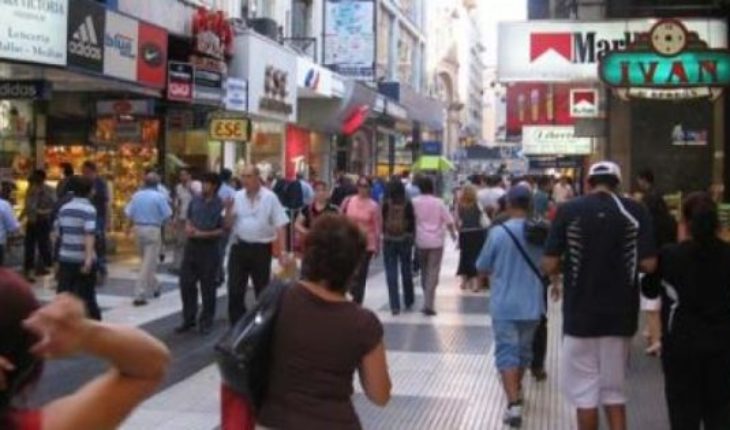The reality we assume on a daily basis is in our head. However, this is not exclusively a projection of our consciousness. The way we conceived the world is tainted by ideas inserted through a lengthy process of inception by a system that is invisible to the naked eye. This convinces us that what matters is individual satisfaction. A kind of happiness costume that we expose to others, where there is no room for frustration, anger, anxiety, sadness, desolation and other socially penalized emotions. The system claims that happiness despite precarizing the material and psychological conditions of most people. But how does the reality of the system operate?
Let’s go to the beginning, to that way of life that pivots our reality. We live in a world whose dynamizing center is a supposed economic rationality. One that touts, by way of sermon, that the important thing is economic growth, the free market and private investment. A sermon that defines us as that homus económicus proposed by Hayek’s neoclassical economic ideology, and that reduces us to a mere producer and consumer of transable goods and services. Our priority functions are to work, produce and consume. In this scheme, artistic creation as well as thought or science can only emerge if they are contingent on the opinions of the economic profitability of the owners of the capital. From this economic perspective, individuals are free to choose, as long as they do so by parting in what the system proposes.
Within this framework many people have been convinced that with individual effort you can get out of poverty or that greater consumption is better for everyone. However, the first is nothing more than an act of self-exploitation which, if not supported by others, only perpetuates precariousness to many people. In the second case, the real effect of higher consumption is to exponentially increase the wealth of the richest and reduce the incomes of the poorest. That is, a bottom-up rent transfer. None of these ideas is evidence of most people’s lives. But if there is no truth in them, then why are they still the predominant ones in today’s society. This is basically because there is something we might call the “network of domination”, which gives meaning to all the inconsistencies of the social system. A network that acts as an elite that shares interests, values and ideology.
Based on neoliberal ideas, this elite has developed a great job of social control engineering. It has given life to a panoptic machine in which gears, hook points and sequencers work with great efficiency. Thanks also to a story that is able to hack human brains to make them functional, and even totally adept at a certain rationality that has no factual correlation or is statistically irrelevant.
For example, the professed social rise of people of low social strata to intermediate or high strata, which is exposed as a triumph of the system when it is nothing more than an exceptional fact. And this idea is despite the rigid segregation between social strata imposed by the most radicalized version of capitalism that turns social classes into real watertight compartments. This leads to a normal view of the existence of supermarkets, shopping malls, schools, neighbourhoods, entertainment activities, etc. differentiated by social class.
All of the above is reinforced by various messages reproduced and sacralized by all institutions of human socialization. In the family, school, university, media and enterprise are repeated as a mantra phrases that favor competition, selfishness, consumption, investment or ownership over cooperation, knowledge, spiritual development or Empathy. That’s the route to success. Thanks to their acceptance we are convinced that poverty is the individual result of the slack, while to arise you have to sacrifice everything for the work. The latter is almost always accompanied by images and testimonies of people who give a romantic halo to work precariousness. And voila, we have the perfect synthesis between ideology and structure, where ideas are justified by reality and vice versa.
In this way, our entire life cycle is defined by the vision of the system, which is none other than that of being docilely adaptable to it. May it all be an endless race towards the illusion of individual well-being based on the work-money-consumption triad. This means that our skills, skills, knowledge and time are fully available for the production imposed by capital. In effective terms, be useful for other individuals who have scantly subjected theself to this triad. Yes, because the market, competition and work only exist for those who are not part of the elite.
In a way, our world is practically a dystopia. A world that may be intrinsically similar to some literary narrative belonging to the dystopian genre, such as that of Aldous Huxley’s Brave New World.
Huxley’s work, published in 1932 and translated into Spanish as “A Happy World,” describes a global society governed by centers of reproduction in vitro. The leitmotiv of this society is human happiness, conceived as a constant state of evasion, cognitive drowsiness and a specific work specificity from before birth. In it there is no room for love, anger, epic, critical thinking, art and/or cooperation, all identified as the sorrows that make human beings unhappy.
In “A Happy World” people are destined to follow their lives according to ideas implanted through a method called “hypnopedia”. Ideas that define behaviors that are reinforced by pavlovian conditioned reflection and the application of electroshocks. Through this conditioning one achieves the indissoluble link between the mind and the social function. From it is consolidated a single way of understanding life, that implanted by power. Leaving out mass experimentation with humans, this is very similar to the constant reproduction of certain messages in the media supposedly dedicated to educating and informing us today.
Generally speaking, Huxley’s novel can be said to be a critique of the empire of capitalist rationality and economicism. A domain that he exposes at every moment mentioning the conditioned love of technology, the work functionality and the consumerist alienation of his characters. Nearly a century later, this critique could well be seen as a description of the functional reality dictated by neoliberalism for four decades in almost the entire capitalist world-system. That reality that dominates our own happy world.
In our reality we resemble that idea of social perfection that is set out in “A Happy World”, a happy citizen, worker and consumer of goods. A perfection that sums up very well what is expected of humanity in our times. But it also means what is not expected of it, critical thinking, or political debate, nor cooperation. Whoever intends to go against the current ends up classified as an outcast by his own peers. In a figurative sense, it becomes an outcast from this “happy community” of workers, competitors and consumers. By the way, something similar to what happens in the Huxley dystopia, where those who dare to challenge the ideas originating in the system are sent to a distant island. Although in this case the banishment is literal.
Eduardo Alvarado Espina is a political analyst and ph.d. in political science.
The content poured into this opinion column is the sole responsibility of its author, and does not necessarily reflect the editorial line or position of El Mostrador.





